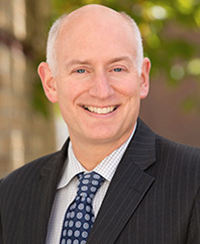Psychiatry
Major Depressive Disorder
Current Needs and Future Advances in Major Depressive Disorder
Overview
Improving quality of life for a patient with major depressive disorder (MDD) requires clinicians to first recognize the depression. Such recognition may also extend to the patient’s family and/or caregivers. Panelists highlight the current needs in this area but also look to the future to consider possible advances in the field. These may include problem-solving therapies, molecular entities that help to restore cognitive function, and improvements stemming from a more integrated type of psychiatric care.
Q: What do you believe are some of the key current needs in the field, and what are you most excited about in terms of future advances?
Michael E. Thase, MD
|
|
In regard to current needs, I think that recognizing and treating depression in the family and caregivers of people who are suffering from both depression and declining intellectual function is important. Treatment can go a long way to help improve quality of life and to help keep people at home and in safer settings, and, ideally, more functional. One of the truly depressing things in life is to see a family member slipping away, and to feel that it is completely out of your control. As healthcare providers, we can do great good in identifying and getting treatment for the caregivers of patients with depression and dementia.
Turning to future advances, I think that just the possibility of 1 medication with 1 difference in its sub-effect showing an advantage in improving cognitive symptoms that selective serotonin reuptake inhibitors (SSRIs), serotonin and norepinephrine reuptake inhibitors (SNRIs), and other modern antidepressants don’t show is interesting. It should keep us open to the possibility that there are complexities in the regulation of cognitive function that might covary with mood disorder or that might be somewhat independent of mood disorder, and that we are only beginning to understand how to go about trying to selectively intervene. So, I think that, although we have been at a relative plateau in drug development, it is not without some interesting possibilities.

Brent P. Forester, MD, MSc
|
|
Prevention is also one promising area that I think that Dr Reynolds will be able to elaborate on a bit further. There are newer cognitive behavioral strategies that are directed toward some of the executive function impairments that we see with cognitive symptoms of late-life depression: deficits in organization, planning, and initiative (ie, some of those impairments that really don’t respond well to medication and don’t necessarily respond well to certain psychotherapies). There are studies examining specific psychotherapies to help address what’s called the “executive dysfunction syndrome of depression.” And this is a syndrome that we more commonly see in the older adult patients who develop depression for the first time after the age of 55 or 60 years.
Charles F. Reynolds, III, MD
|
|
“We are trying to develop scalable models of depression prevention for older adults at risk, particularly those in primary care.”
I think that the notion of prevention is really interesting to develop further, and as Dr Forester alluded to, I am doing prevention research with colleagues in Goa, India. I have an interventional development grant from the National Institutes of Health. We are trying to develop scalable models of depression prevention for older adults at risk, particularly those in primary care. These models might have some utility because they use lay health counselors in low- and middle-income countries.
Interestingly, the model that we are using involves the principles of problem-solving therapy, a learning-based approach to psychotherapy that does seem to have some positive cognitive effects and depression prevention effects. Many people would consider problem-solving therapy, a derivative of cognitive behavioral therapy, as an activating intervention.
Dr Forester:
Here is another topic that I know Dr Reynolds is an expert on, having conducted some of the landmark clinical trials in the area ‒ and I have been working to implement this in our healthcare system: integrating these new models of depression treatment into the primary care practice. We bring psychiatric care services into the primary care setting and collaborate with a primary care physician to both assess and manage depression with medication and psychotherapy. Instead of sending someone out to a specialist who may or may not be available, or may not even exist in the area where a primary care physician is working, these collaborative care teams can actually help to co-manage the illness within the primary care setting. That not only improves the symptoms of depression, but it also helps with medical costs down the road.
“We bring psychiatric care services into the primary care setting and collaborate with a primary care physician to both assess and manage depression with medication and psychotherapy.”
There are a variety of models. One model is the embedded model. The physician identifies someone with depression, and, say, a social worker will take over some of the care. But in the collaborative care model developed by Dr Jeurgen Unutzer and colleagues at the University of Washington in Seattle, the behavioral health specialist (or depression care manager) is not an MD or PhD, or even a licensed social worker, but rather often a college graduate interested in healthcare. This individual is flexible in thinking, has well-developed interpersonal skills, and provides basic therapeutic techniques such as motivational interviewing and behavioral activation. The behavioral health specialist carries a caseload of 60 to 80 individuals with depression and works on motivating patients to become or remain active and to take their medications. This specialist also interacts with the psychiatry supervisor and the primary care physician. The psychiatrist is overseeing the care by meeting with the team 1 to 2 hours per week to talk about the diagnosis and treatment, making sure that the medications that are being used are appropriate and are being well tolerated, that the Nine-Item Patient Health Questionnaire (PHQ-9) scores are going down, and that the patients are getting better. And, so, the behavioral health specialist is the glue that holds this team together.
I’d also echo some of Dr Thase’s comments regarding current needs, and I think that it’s important for generalists to not shy away from “looking for depression.” I think that 1 of the problems that happens in primary care in a busy practice setting where patients are seen for 12 minutes and there are unwieldy amounts of documentation to do is that, if the physician picks up on a problem with depression or anxiety ‒ or any mental health condition, for that matter ‒ it’s going to add time and it might stretch the provider’s capacity to manage the problem. Many physicians will tell you that they’d rather not know. And it’s easier to pick up hypertension and manage it than it is to pick up any psychiatric condition, including depression, and manage it. This is precisely why I think that the collaborative care model that brings integrated psychiatric treatment into primary care to co-manage and to support the primary care effort at treatment is so critical. I think that you are going to start to see more of these integrated efforts.
The stigma surrounding all mental illness is so large and leads to both diagnostic and therapeutic nihilism, if you will. And one of the real challenges (and I like to point this out to primary care physicians with whom I speak and to my students) is that when you are seeing older patients who maybe just lost a spouse; who might be physically handicapped because of a gait disorder; who maybe just fell and broke a hip, and are going through rehabilitation in a nursing home; or who have had a massive change in their life circumstance and are exhibiting symptoms of depression ‒ you know, with all of that, a doctor may say, “Well gosh, I’d feel depressed if that happened to me, too.” And that’s called ageism ‒ projecting you own biases about getting older onto people whom we are seeing. That leads to both diagnostic and therapeutic nihilism. You figure, what’s the point? I’d feel this way too. And that’s really a dangerous situation to be in. And not only do physicians fall into this trap, but also patients themselves feel this way. Their families often feel this way too because the impact of this illness is not only burdensome for the patient, but also for the family members who are trying to provide care. So, I think that there is still a lot of education needed. There is still a lot of stigma that needs to be overcome to effectively assess and treat mental health conditions in primary care.
Depression is highly treatable. Treating depression not only saves lives in terms of preventing suicide, but also saves lives in terms of improving care for other comorbid chronic medical conditions, such as diabetes and heart disease. I think that primary care physicians are becoming increasingly aware of this, but implementing effective integrated behavioral health strategies can be challenging due to a variety of organizational and financial barriers.
“There is still a lot of stigma that needs to be overcome to effectively assess and treat mental health conditions in primary care.”
References
Cohen A, Dias A, Azariah F, Reynolds, CF, et al. Aging and well-being in Goa, India: a qualitative study. Aging Ment Health. 2016 Sep 30:1-7. doi: 10.1080/13607863.2016.1236239. [Epub ahead of print].
Harvey PD, Jacobson W, Zhong W, et al. Determination of a clinically important difference and definition of a responder threshold for the UCSD performance-based skills assessment (UPSA) in patients with major depressive disorder. J Affect Disord. 2017;213:105-111.
McIntyre R, Harrison J, Loft H, et al. The effects of vortioxetine on cognitive function in patients with major depressive disorder: a meta-analysis of three randomized controlled trials. Int J Neuropsychopharmacol. 2016;19(10):pyw055.












